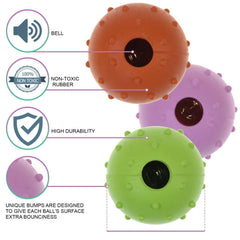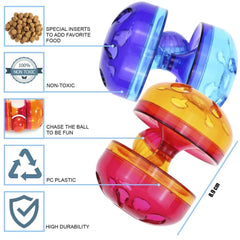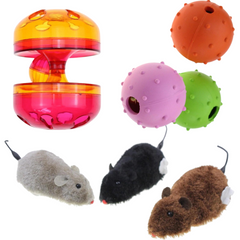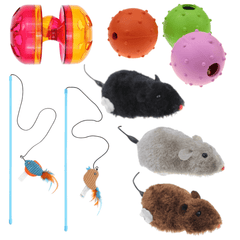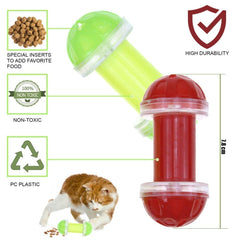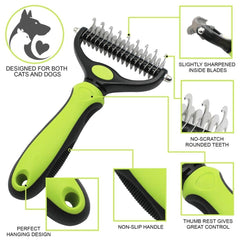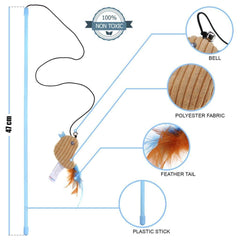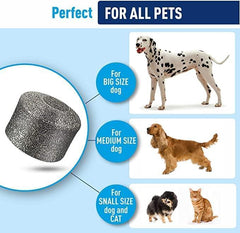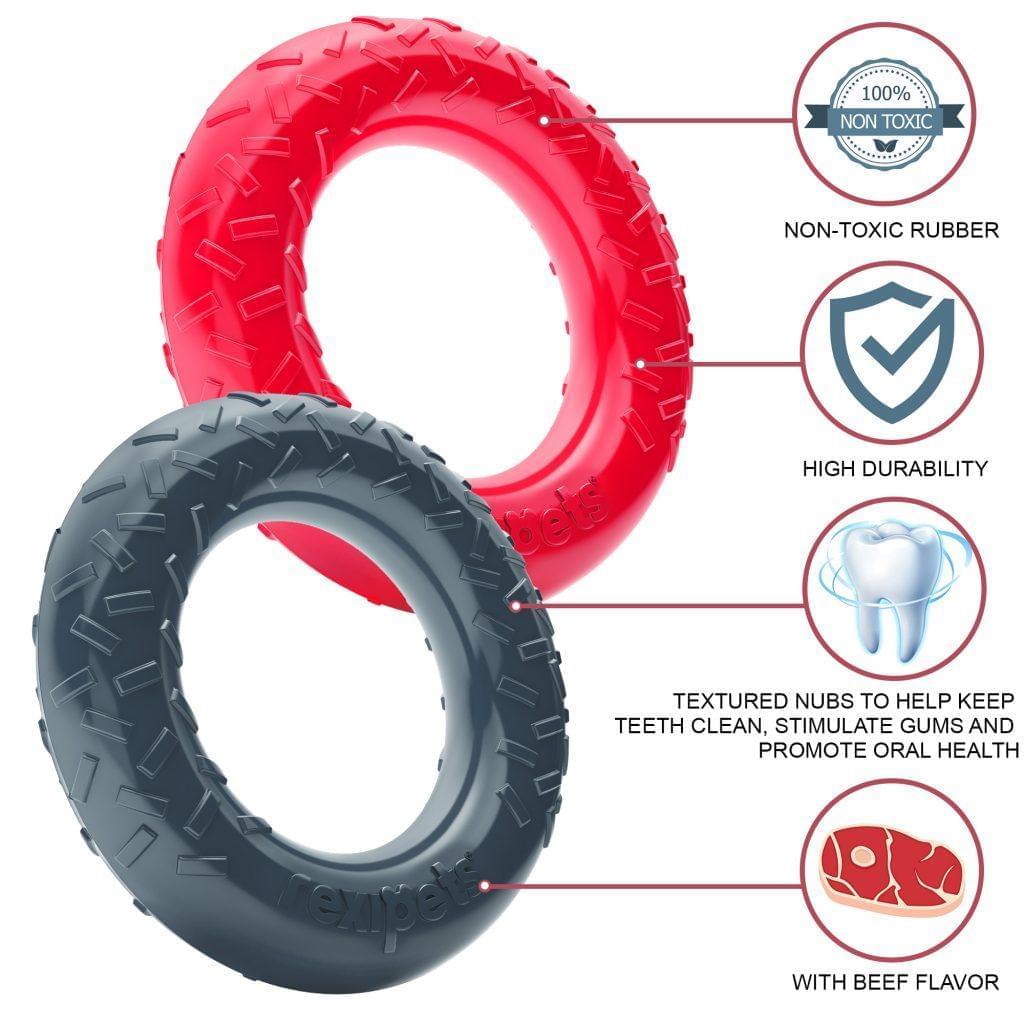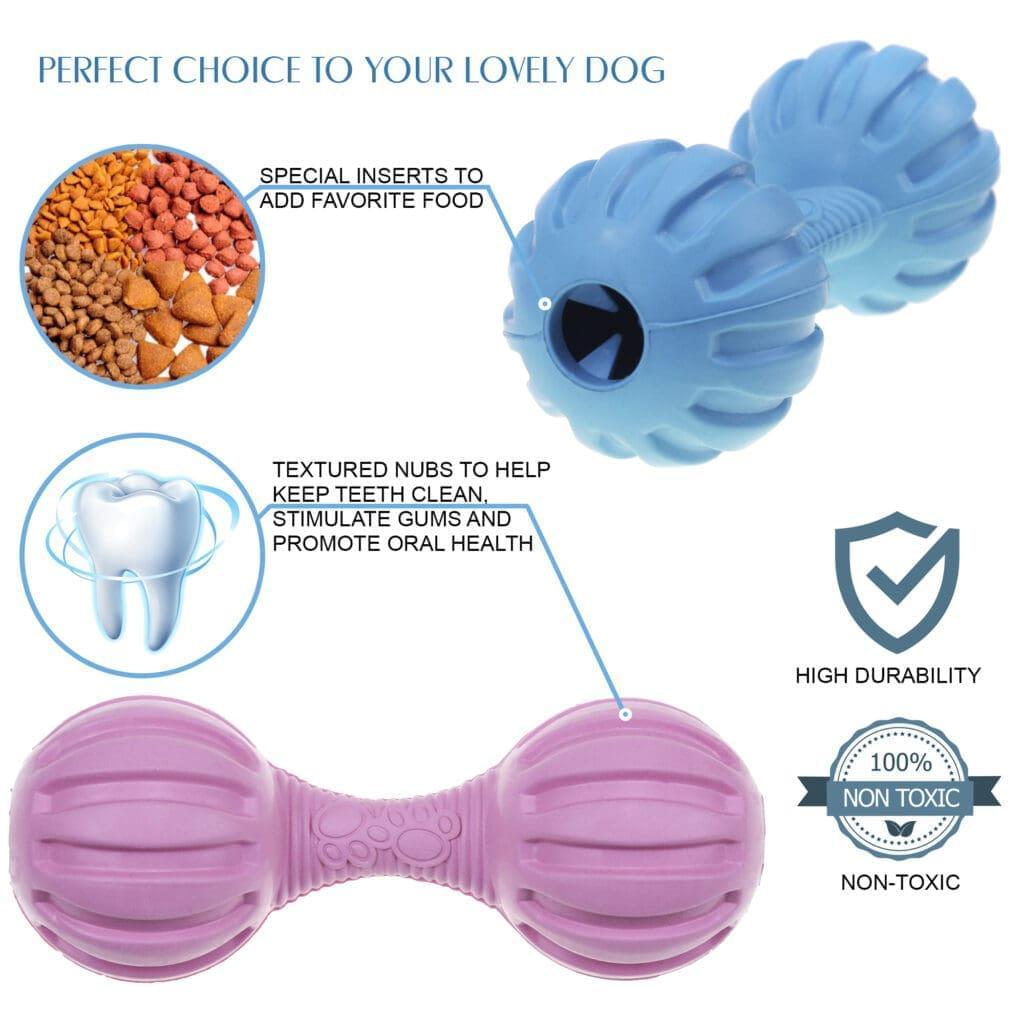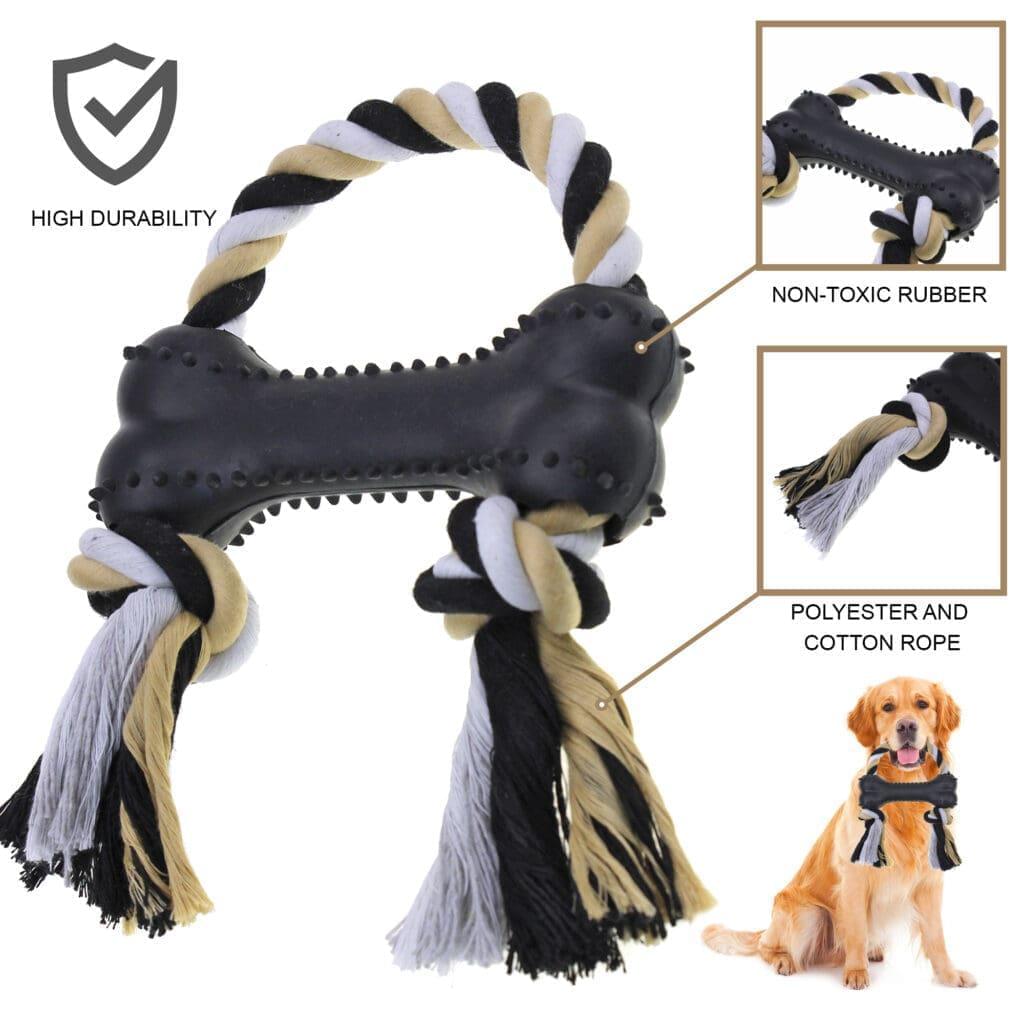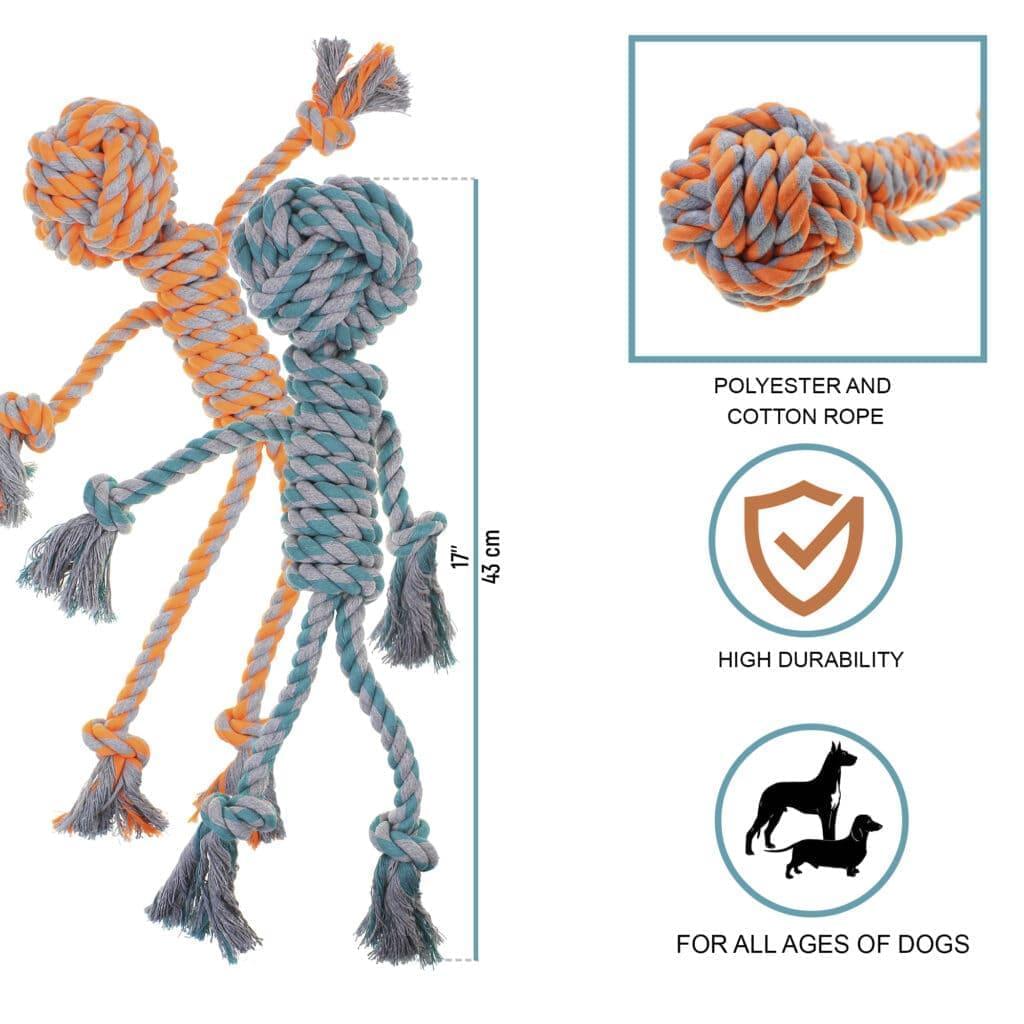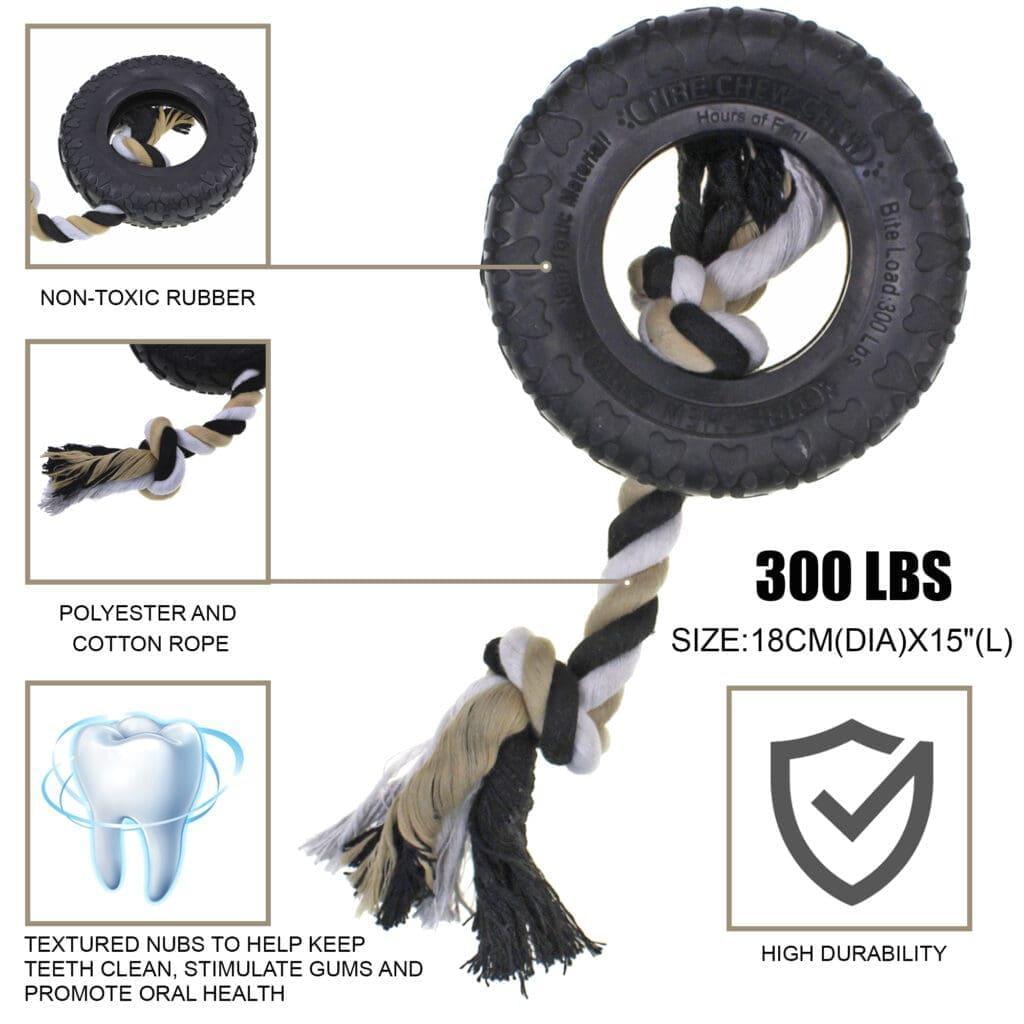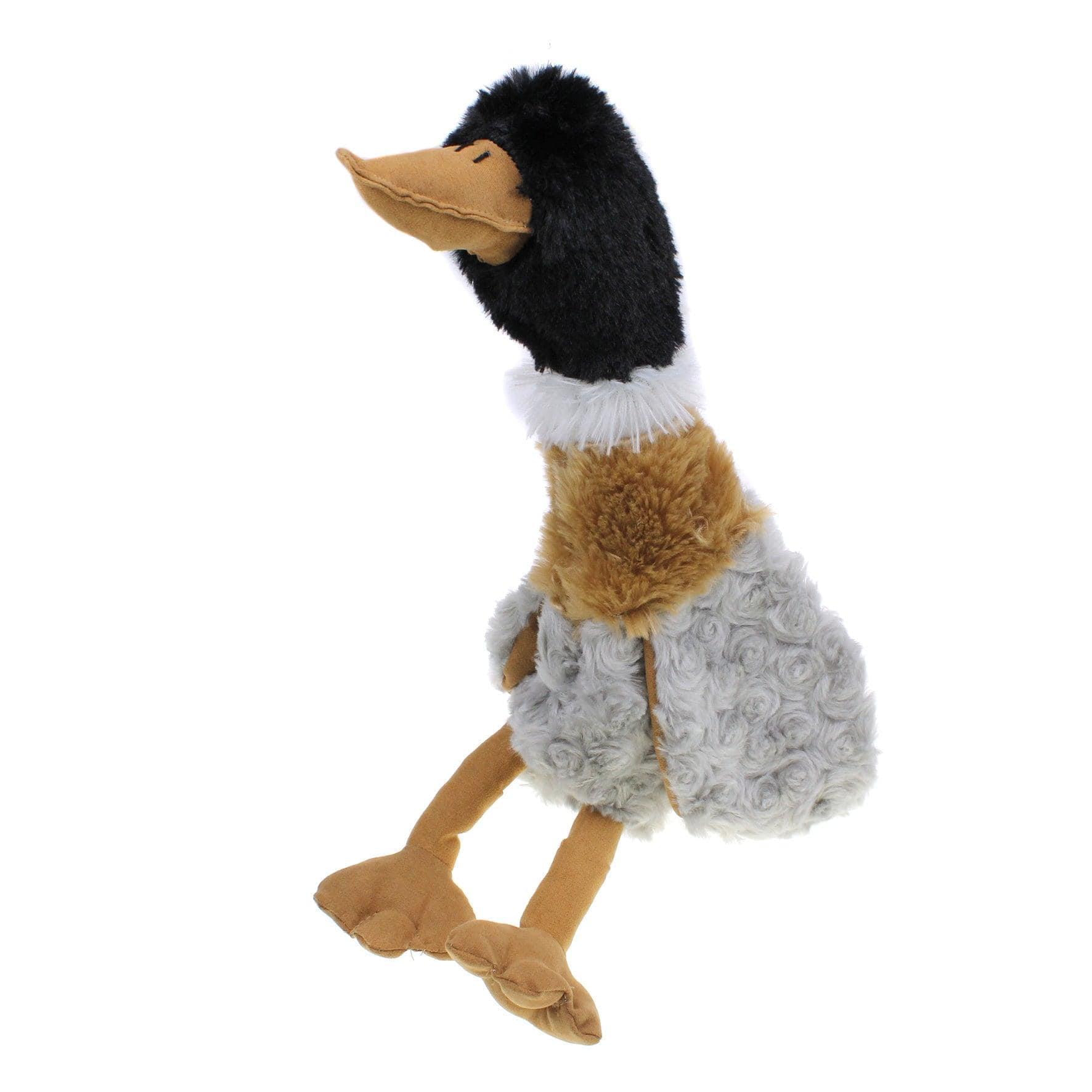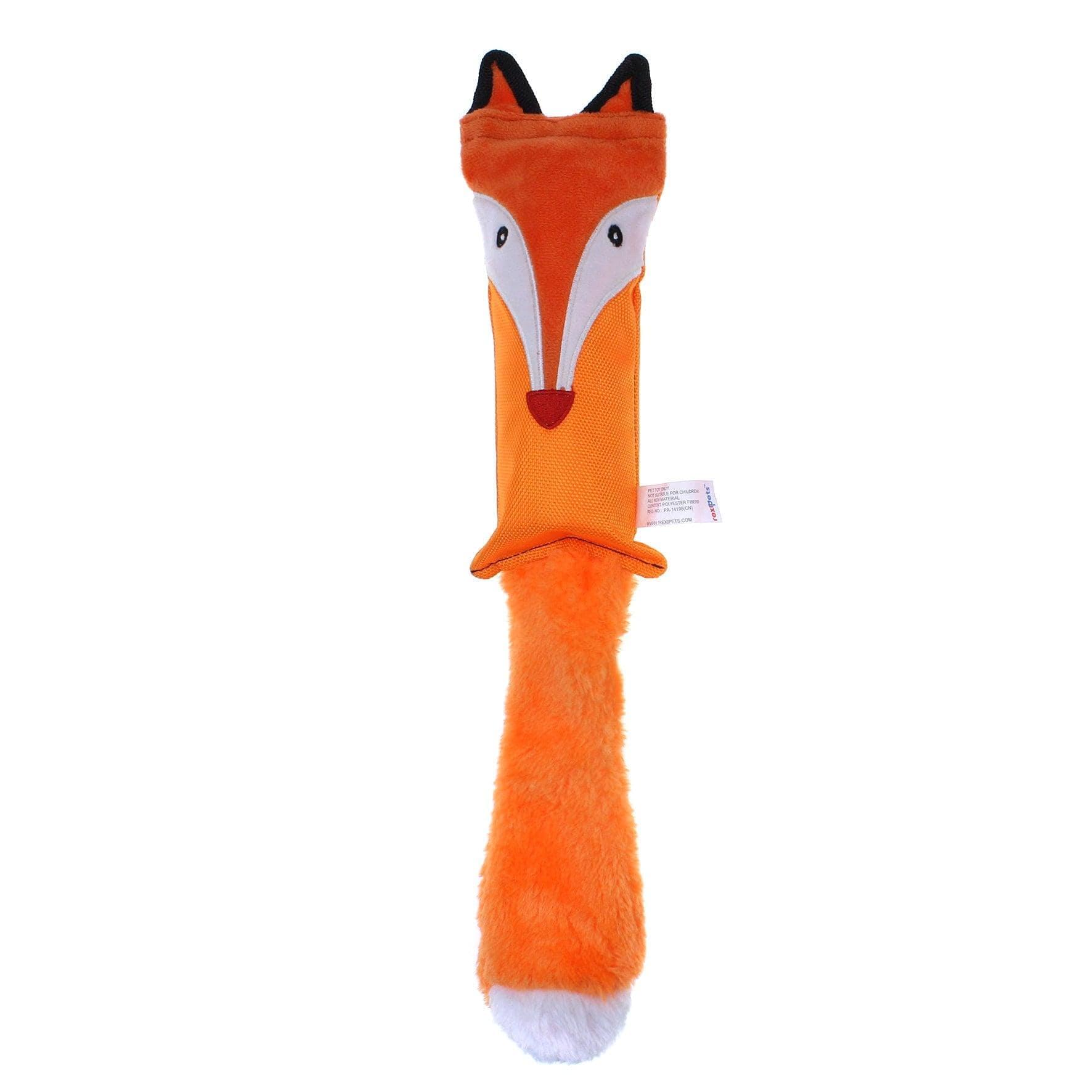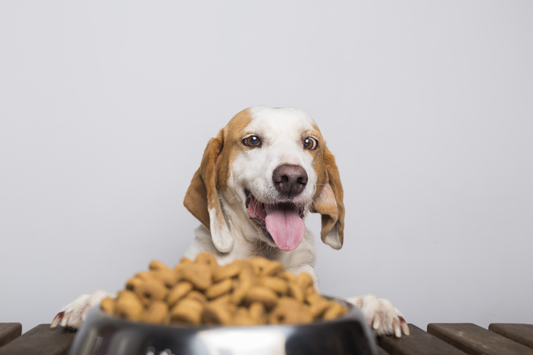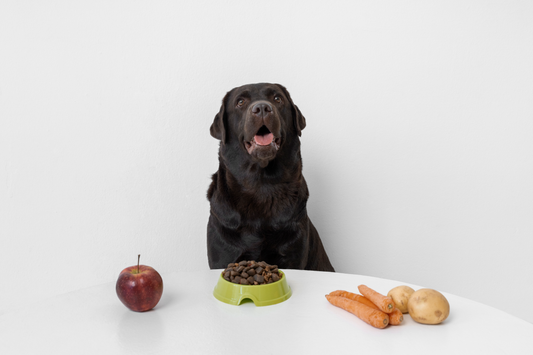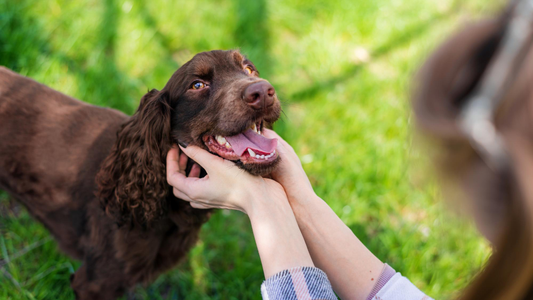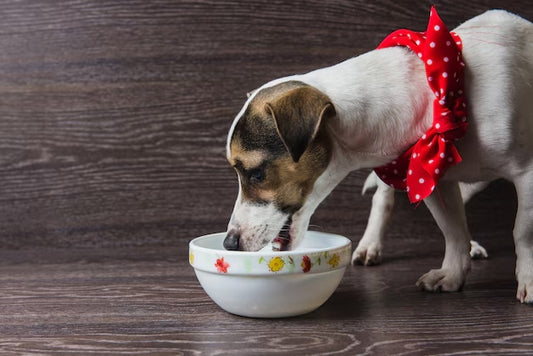
As responsible caregivers, we know that our little balls of fur go through various stages of growth and development, each with its unique challenges. Just as they bring us boundless happiness, they can also stress us out with dreaded puppy diarrhea.
Teething, a milestone in every pup's life, can be a source of discomfort and sometimes even distress. Just like human babies, puppies experience the eruption of their tiny teeth, which can cause discomfort and digestive issues leading to diarrhea.
If you've noticed your adorable fur baby experiencing loose stools during teething, fear not! In this article, we will explore puppy diarrhea resulting from the teething period, unraveling its causes, symptoms, and, most importantly, effective ways to manage and alleviate this temporary challenge.
Join us as we navigate the intricate world of teething and its impact on your puppy's digestive system. We'll provide practical tips, expert advice, and reliable insights to help you better understand and address this common concern. So, let's embark on this adventure together, with our furry companions leading the way!
What Is The Teething Process For Puppies?
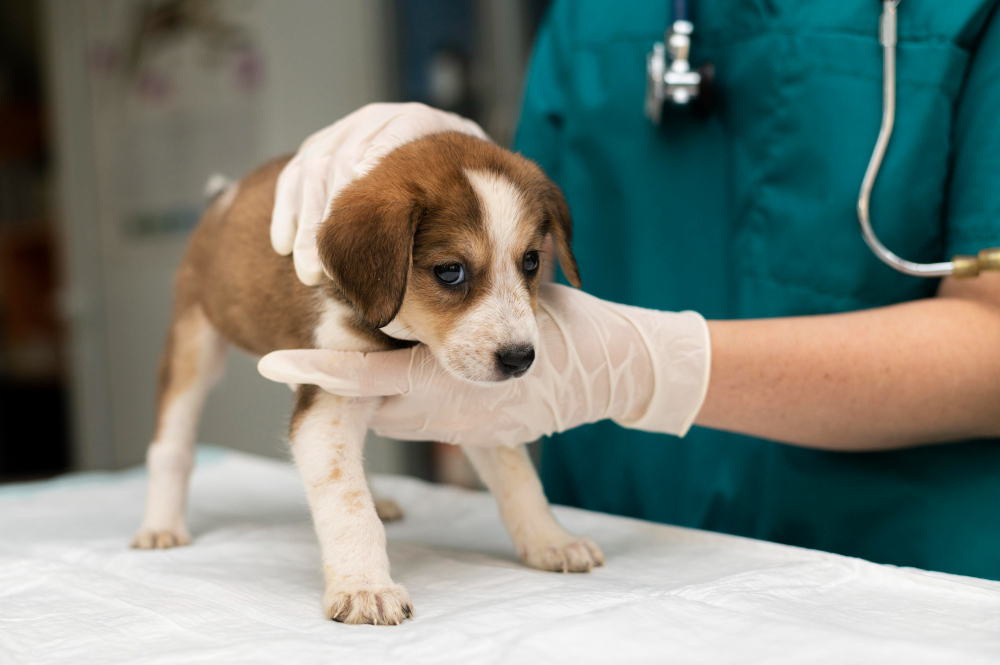
Puppies typically start teething around 2 weeks old, which can continue until they are around 10 months old. Teething involves the growth of both puppy teeth and adult teeth. During this period, puppies may experience digestive issues such as an upset stomach, diarrhea, and occasionally vomiting.
At around 8 weeks old, a puppy will have 28 milk teeth, which is essential to start consuming and digesting solid food. As the puppy grows, their front teeth will fall out at around 3 to 4 months of age. The fangs and premolars will gradually be replaced by permanent teeth.
This teething process can be uncomfortable for your young puppy, as their new teeth are emerging and pushing out the baby teeth. The discomfort can lead to an upset digestive system and the accompanying symptoms of diarrhea and vomiting. It's important to note that this is a normal part of a puppy's development.
During this teething phase, you must provide appropriate dog chew toys and objects for your puppy to alleviate the discomfort and promote healthy tooth development. Additionally, monitoring their diet and ensuring access to fresh water is essential to support their overall well-being.
Suppose the digestive issues become severe or are accompanied by other concerning symptoms. In that case, it's recommended to consult a veterinarian for further evaluation and guidance.
What Kind Of Behavior To Expect From A Teething Puppy?

During the erupting phase of milk teeth, you can expect to see certain behaviors in a puppy as they cope with the discomfort of new teeth emerging. These behaviors can vary from puppy to puppy, but some common behaviors in teething puppies include:
-
Increased chewing
Puppies may have a strong urge to chew and gnaw on objects to relieve the discomfort in their gums. They may seek out appropriate chew toys or even chew on household items if suitable alternatives are not provided.
-
Excessive drooling
The teething process can stimulate saliva production, increasing puppies' drooling. You may notice more saliva around their mouths or toys they've been chewing on.
-
Irritability and restlessness
The discomfort and soreness in their gums can make puppies irritable and restless. They may exhibit signs of discomfort like pawing at their mouths, rubbing their faces against surfaces, or being generally more fussy.
-
Appetite changes
Some puppies may experience a decrease in appetite during the teething stage due to the discomfort they feel in their mouths. However, others may find relief through chewing and have an increased appetite. It can vary from puppy to puppy.
-
More chewing on hands and fingers
Puppies may start to explore and chew on human hands and fingers as they seek relief from teething pain. It's important to redirect this behavior to appropriate, safe chew toys and discourage biting on hands.
-
Changes in sleep patterns
Discomfort from teething can affect a puppy's sleep patterns. They may have difficulty settling down or wake up more frequently during the night due to discomfort.
How You Can Help a Teething Puppy with Diarrhea?
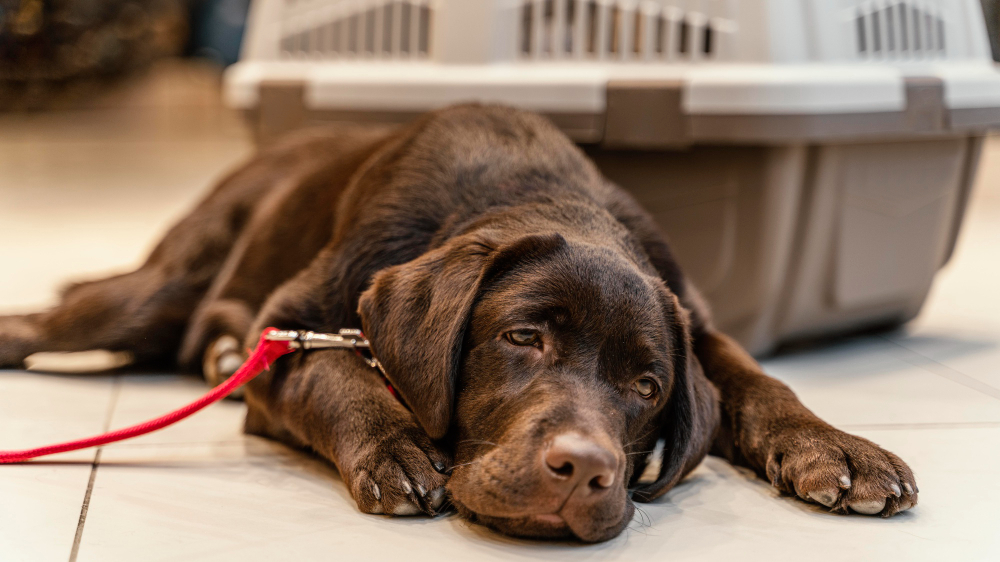
When your teething puppy is dealing with diarrhea, there are several ways you can provide relief and support:
First, consider adjusting their diet temporarily. Go for a bland diet of boiled chicken or lean ground beef mixed with plain, cooked rice or pumpkin puree. These easily digestible foods can help firm their stools and soothe their upset tummy.
Hydration is crucial, so ensure your puppy can always access fresh water. Diarrhea can lead to dehydration, so monitor their water intake closely. You can also offer Pedialyte or electrolyte solutions to help replenish lost fluids and keep them hydrated.
Introducing probiotics into their diet can also be beneficial. Probiotics promote a healthy gut by restoring the balance of good bacteria. Consult your veterinarian for suitable probiotic supplements or probiotic-rich foods, such as puppy-safe yogurts.
Create a comfortable environment for your teething pup. Provide them with a quiet space to rest and recover. Avoid overexertion and limit intense playtime until their diarrhea subsides. You can also provide home remedies for teething puppies to help out your pup.
Monitor your puppy closely during this time. If diarrhea persists or worsens, or if your puppy exhibits other concerning symptoms like severe lethargy or loss of appetite, it's essential to seek veterinary advice. A veterinarian can assess the situation, identify underlying issues, and recommend appropriate treatment.
How Long Does Teething Diarrhea In Puppies Last?
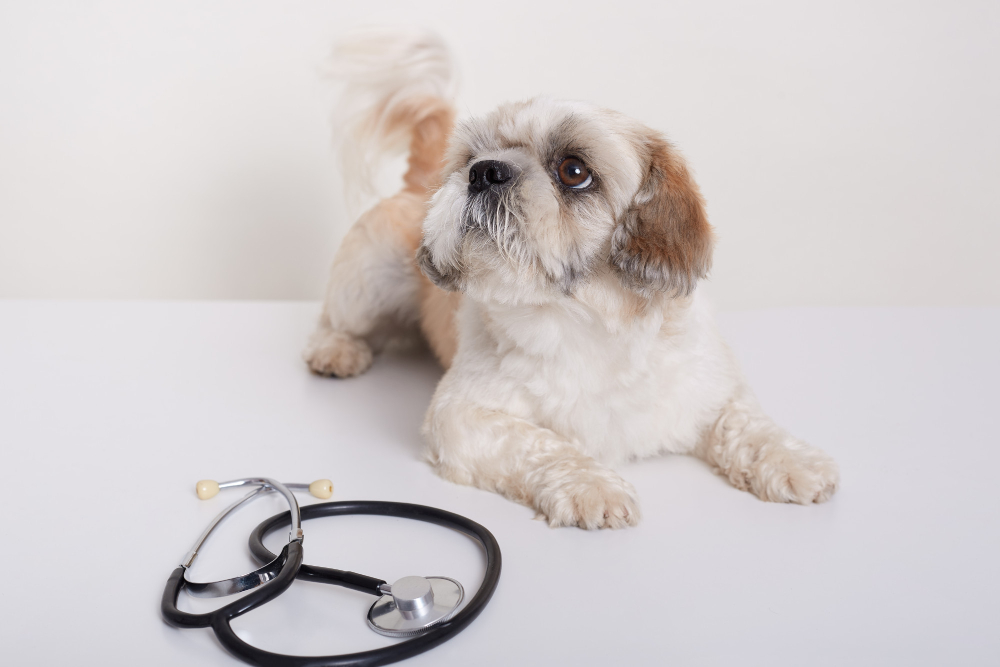
As long as your furry friend is drooling excessively, there is a possibility that they are swallowing some of the drool. Swallowing drool can cause your furry friend to lose their appetite. This gets their stomach upset, resulting in diarrhea.
So, your dog may continue having a smaller-than-normal appetite and often suffer from diarrhea during teething.
Generally, suppose you already know your pup is teething and having recurring episodes of mild diarrhea. In that case, it's not something to be worried about, provided they are eating and functioning normally.
However, suppose their diarrhea becomes severe or is accompanied by vomiting (especially vomiting blood), lethargy, abdominal pain, or fever. In that case, you should see a veterinarian as soon as possible, to check for bacterial and viral infections.
In the meantime, you shouldn't continue feeding your furry friend their regular diet. Suppose their diarrhea is severe, especially when accompanied by other symptoms. In that case, you shouldn't feed your pup anything solid for at least 12 hours, but make sure you make water available 24 hours a day. Dogs can quickly become dehydrated when they are suffering from diarrhea.
When Do You Need To Ask For Veterinary Advice?
While it's normal for puppies to experience tummy troubles during their growth phase, it's essential to know when these issues go beyond the usual and become concerning.
If your puppy consistently shows severe symptoms like vomiting, loss of appetite, lethargy, or significant changes in bowel movements, it could indicate a more severe problem, such as a gastrointestinal infection or ingestion of something harmful. In such cases, it's crucial to seek immediate veterinary care.
You can also determine your puppy's health by observing its behavior and energy levels. Suppose your usually active and playful pup suddenly becomes lethargic or uninterested in its usual activities. In that case, it's a good idea to consult a vet.
Remember to trust your instincts as a puppy parent. You know your furry friend best, so if something feels off, it's better to be cautious and seek advice from a veterinary professional.
Ultimately, our main goal is to ensure the well-being and happiness of our beloved pets!
Final Words!
To sum up, when your adorable pup goes through the teething phase, it's not uncommon for them to experience diarrhea. Those baby teeth falling out and making way for canine teeth can mess with their digestive system and cause diarrhea in puppies.
The good news is that this is usually just a temporary situation. You can help your teething furball by providing suitable chew toys to soothe their sore gums and distract them from nibbling on your favorite pair of shoes. It's also essential to monitor their diet and ensure they have plenty of water available to prevent dehydration.
It's important to note that not all loose stool during teething is harmless. Suppose things turn worse, and your pup has severe diarrhea, starts throwing up (especially if there's blood involved), acts lethargic, or seems to be in pain. In that case, it's time to play it safe and schedule a vet visit.
So, while teething-related diarrhea can be a messy inconvenience, it's usually nothing to lose sleep over. Just watch your pup, give them the appropriate chew toys, and make sure they stay hydrated. But if your adult dogs experience diarrhea, then you should consult your vet.
With patience and care, you and your teething buddy will get through this phase together and come out with a wagging tail and a healthy set of adult teeth.
Don't forget to provide your furball comfort when their baby teeth fall out!
